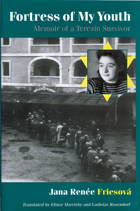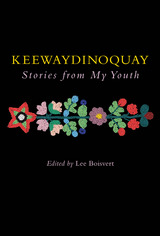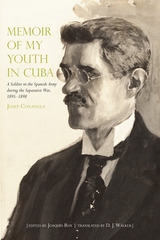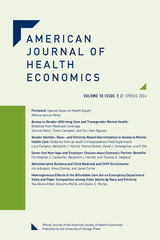
Jana Renée Friesová was fifteen when she was imprisoned by the Nazis in the Czech ghetto town of Terezín. Her memoir tells the poignantly familiar story of a young girl who, even under the most abominable circumstances, engages in intense adolescent friendships, worries with her companions over her looks, and falls in love.
Anne Frank’s diary ends with deportation to a concentration camp; Fortress of My Youth, in contrast, takes the reader deep into the horrors of daily life in a camp that were faced by a young girl and her family. But Friesová also tells of love, joy, sacrifice, and the people who shared in the most profound experiences of her life.

The stories span generations and cultures and shed a rare light on the living conditions of Native Americans in Michigan in the early 1900s. They recount Keewaydinoquay's education in the public schools, illuminate the role Christianity played in Native American culture, and reveal the importance of maintaining traditional customs.
Keewaydinoquay was one of the very few Native American women who was steeped both in the ancient folkways of her people as well as erudite in the American university system. Ultimately she wove her native tradition and university learning together into a unique perspective that helped people understand the importance of nature and the human spirit.
Keewaydinoquay Peschel was Lecturer of Ethnobotany and Philosophy of the Western Great Lakes Indians at the University of Wisconsin. She is the author of several books, including Blue Berry: First Fruit of the Anishinaabeg. She passed over in 1999. Lee Boisvert attended the University of Michigan as a member of the Residential College from 1967 to 1969, and was awarded a Bachelor in Science in Sociology with double minors in Native American Studies and Gerontology by Central Michigan University in 1993.

Spaniard Josep Conangla was conscripted at the age of twenty and sent to Cuba. In the course of his time there, he reaffirmed his pacifism and support of Cuban independence. The young man was a believer who unfailingly connected his view of events to the Christian humanitarianism on which he prided himself. Conangla’s advanced education and the influence of well-placed friends facilitated his assignment to safe bureaucratic positions during the war, ensuring that he would not see combat. From his privileged position, he was a keen observer of his surroundings. He described some of the decisions he made—which at times put him at odds with the military bureaucracy he served—along with what he saw as the consequences of General Valeriano Weyler’s decree mandating the reconcentración, an early version of concentration camps. What Conangla saw fueled his revulsion at the collusion of the Spanish state and its state-sponsored religion in that policy. “Red Mass,” published six years after the War of Independence and included in his memoir, is a vivid expression in verse of his abhorrence.
Conangla’s recollections of the contacts between Spaniards and Cubans in the areas to which he was assigned reveal his ability to forge friendships even with Creole opponents of the insurrection. As an aspiring poet and writer, Conangla included material on fellow writers, Cuban and Spanish, who managed to meet and exchange ideas despite their circumstances. His accounts of the Spanish defeat, the scene in Havana around the end of the war, along with his return to Spain, are stirring.
READERS
Browse our collection.
PUBLISHERS
See BiblioVault's publisher services.
STUDENT SERVICES
Files for college accessibility offices.
UChicago Accessibility Resources
home | accessibility | search | about | contact us
BiblioVault ® 2001 - 2024
The University of Chicago Press









